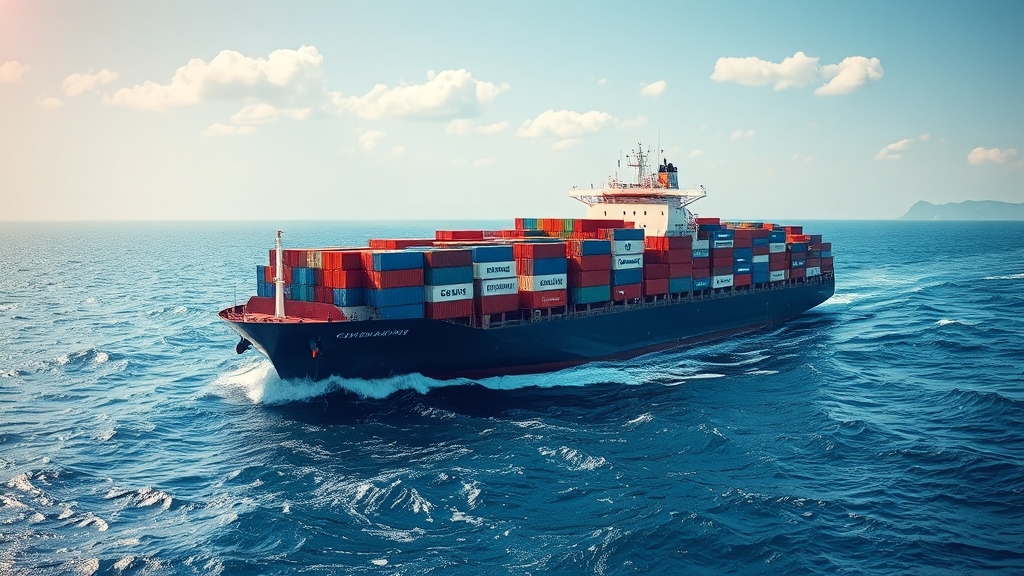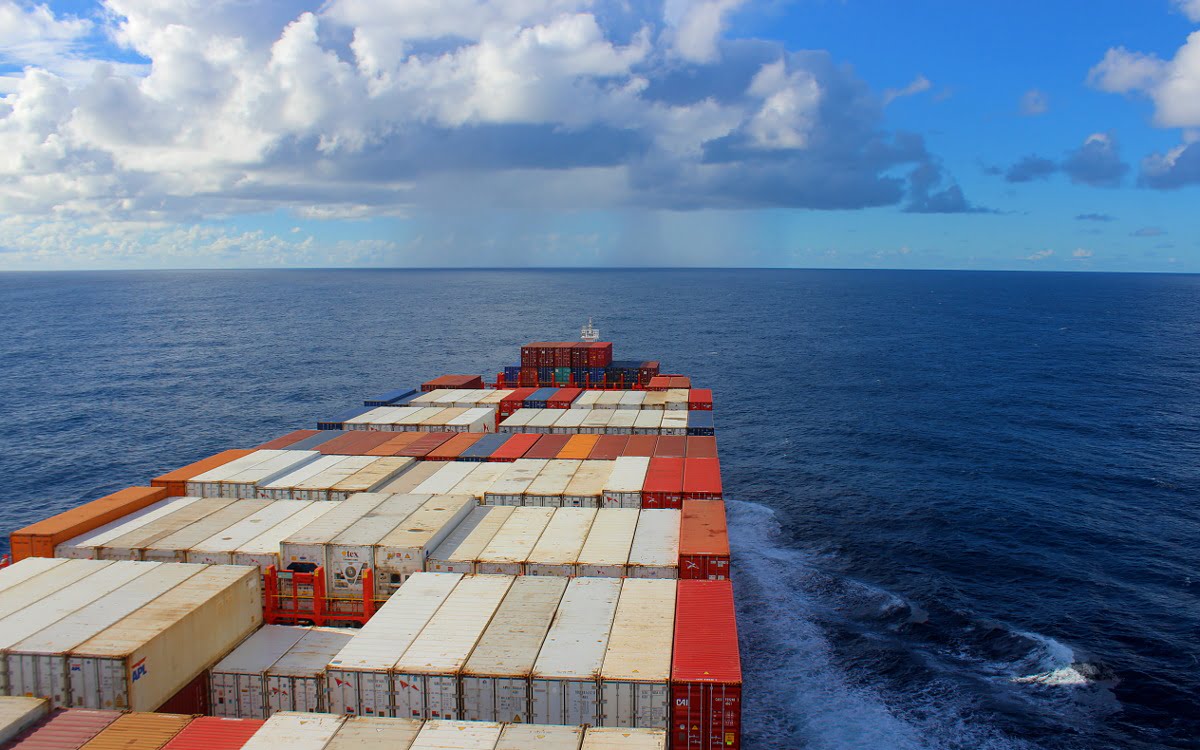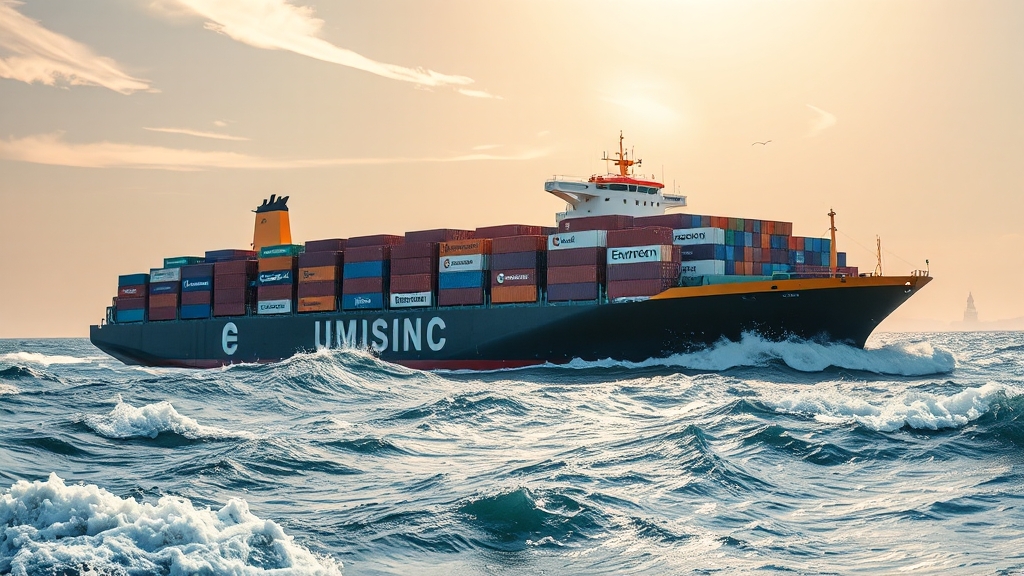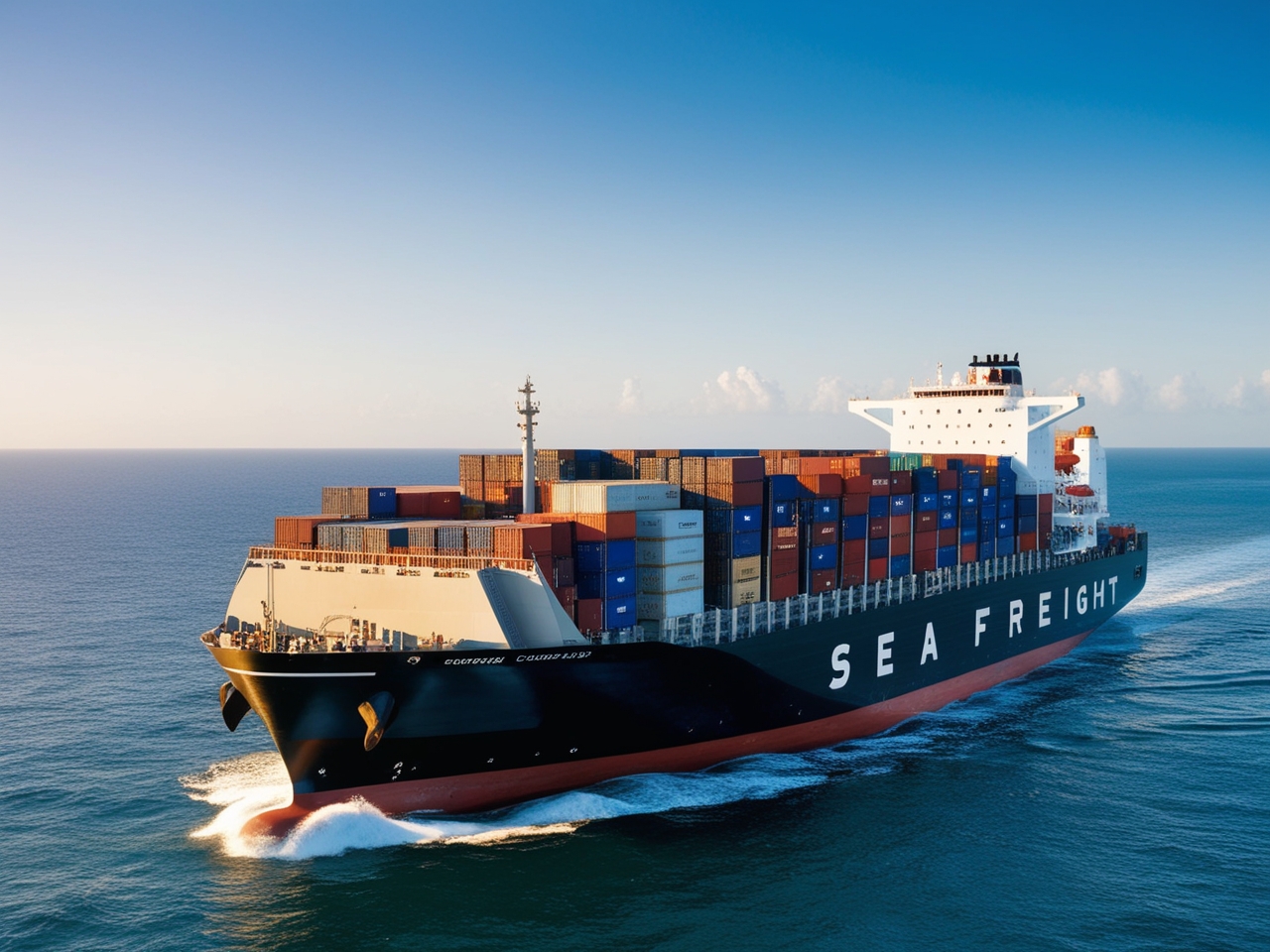When importing goods from China to Ireland, navigating the complexities of shipping options is essential for ensuring timely and cost-effective delivery. With various methods available, including air freight and sea freight, each choice carries its own set of advantages and disadvantages tailored to different business needs. Understanding the implications of shipping costs, transit times, and customs regulations can significantly impact your overall logistics strategy. In this guide, we will explore the various shipping methods, break down costs, and provide insights on how to choose the right shipping company, helping you make informed decisions for your import operations.

Understanding Shipping Options from China to Ireland
When importing goods from China to Ireland, selecting the appropriate shipping method is crucial for ensuring timely delivery and cost-effectiveness. The options primarily available are air freight and sea freight. Each method has its unique characteristics, implications for shipping costs, and suitability depending on the nature of the goods being transported.
Overview of Shipping Methods: Air vs. Sea Freight
Air Freight provides a faster shipping option, making it ideal for urgent shipments or high-value goods. Typically, goods shipped via air reach their destination within days, allowing businesses to manage their inventories more effectively. However, this speed comes at a higher cost, often making it less suitable for bulk shipments or lower-value items.
Sea Freight, on the other hand, is more economical for large volumes of goods. While shipping times can range from several weeks to a few months, the cost savings can be significant, especially for bulk products. Sea freight is often the preferred choice for businesses dealing with larger shipments or less time-sensitive cargo.
To illustrate the differences, here’s a comparison table of the two methods:
| Shipping Method | Transit Time | Cost | Best For |
|---|---|---|---|
| Air Freight | 3-7 days | Higher | Urgent shipments, high-value items |
| Sea Freight | 2-8 weeks | Lower (cost-effective) | Bulk shipments, non-urgent cargo |
Key Factors Influencing Shipping Costs
Several factors influence the overall shipping costs when transporting goods from China to Ireland:
-
Weight and Volume: The dimensional weight of the cargo plays a crucial role, especially in air freight, where charges are often calculated based on the weight or volume, whichever is greater.
-
Shipping Method Selected: As highlighted earlier, whether you opt for air or sea freight will dramatically affect costs. Air freight typically incurs higher charges due to speed and handling.
-
Type of Goods: Hazardous materials, perishables, or oversized cargo may incur additional fees or require special handling, which can increase the overall shipping cost.
-
Origin and Destination Ports: Costs can also vary based on the specific ports of origin in China and the destination in Ireland, as some routes may be more competitive than others.
-
Insurance and Customs Fees: Insurance services and customs clearance fees can further add to shipping expenses. It’s essential to factor in these costs during budget planning.
-
Seasonality and Demand: Shipping rates can fluctuate based on demand, especially during peak seasons like Chinese New Year, when many manufacturers shut down, leading to increased shipping costs.
You may be interested in the following related articles:
- Shipping From China To Cyprus
- Shipping From China to Greece
- Shipping From China to Turkey
- Shipping From China To Belgium
- Shipping From China To Sweden
- Shipping From China To Finland
- Shipping From China To Portugal
- Shipping From China To Czech Republic
- Shipping From China to Austria
Shipping Costs: A Detailed Breakdown
To provide a clearer understanding of shipping expenses when importing from China to Ireland, here’s a detailed breakdown of the average costs associated with both air and sea freight.
Average Shipping Costs for Air Freight
The average cost of air freight from China to Ireland can range significantly based on the specifics of the shipment. As of 2023, typical rates might fall within the following range:
| Weight Range | Average Cost per Kg | Estimated Total Cost |
|---|---|---|
| 1-100 Kg | €5-€15 | €500-€1,500 |
| 100-500 Kg | €4-€10 | €400-€5,000 |
| 500+ Kg | €3-€8 | €1,500+ |
These rates may vary due to fluctuations in fuel prices, demand, and additional handling fees.
Average Shipping Costs for Sea Freight
For sea freight, the pricing model usually considers container sizes. Here’s a comparative analysis of average costs for both Full Container Load (FCL) and Less Than Container Load (LCL):
| Container Type | Average Cost | Estimated Transit Time |
|---|---|---|
| LCL (by cubic meter) | €100-€200 per cubic meter | 4-6 weeks |
| FCL (20-foot container) | €1,500-€3,000 | 4-8 weeks |
| FCL (40-foot container) | €3,000-€5,000 | 4-8 weeks |
Sea freight tends to be significantly more economical for larger shipments, but it requires more planning due to longer transit times.
Hidden Fees and Additional Charges
When budgeting for shipping from China to Ireland, it’s crucial to account for potential hidden fees and additional charges that may not be immediately apparent. Common additional costs include:
- Fuel Surcharges: Fluctuating fuel prices can lead to additional surcharges during transport.
- Handling Fees: Charges for loading, unloading, and any special handling required.
- Customs Duties and Taxes: Depending on the nature of the goods, tariffs may apply upon arrival in Ireland.
- Storage Fees: If goods need to be held temporarily at the port, storage fees may incur.
- Documentation Fees: Costs associated with preparing necessary shipping documents, including customs paperwork.
For comprehensive and cost-effective shipping solutions, consider utilizing the services of Dantful International Logistics, a highly professional, cost-effective, and high-quality one-stop international logistics service provider for global traders.
Transit Times: What to Expect
When planning to import goods from China to Ireland, understanding transit times is essential for efficient supply chain management. The time it takes for goods to arrive can vary significantly based on the chosen shipping method and other influencing factors.
Average Transit Times for Air Freight
Air freight is recognized for its speed. Typically, shipments from China to Ireland can be expected to arrive in approximately 3 to 7 days. This rapid transit time makes air freight ideal for businesses needing to expedite delivery for high-value or perishable goods.
A breakdown of typical air freight transit times might look like this:
| Shipping Route | Transit Time |
|---|---|
| Shanghai to Dublin | 5-7 days |
| Beijing to Cork | 4-6 days |
| Shenzhen to Belfast | 3-5 days |
These estimates can vary based on factors such as seasonal demand and airport processing times.
Average Transit Times for Sea Freight
In contrast, sea freight offers a more economical shipping solution but comes with longer transit times. Generally, shipments may take between 4 to 8 weeks to reach Ireland from China, depending on the specific route and port congestion.
The following table outlines common transit times for sea freight:
| Shipping Route | Transit Time |
|---|---|
| Shanghai to Dublin | 4-6 weeks |
| Ningbo to Cork | 5-7 weeks |
| Guangzhou to Belfast | 6-8 weeks |
It’s important to account for potential delays due to weather conditions, port congestion, or customs inspections.
Factors Affecting Shipping Speed
Several elements can influence the overall speed of shipping goods from China to Ireland:
-
Shipping Method: As previously noted, air freight is significantly faster than sea freight.
-
Distance and Route: The specific shipping route taken can impact transit times, with some routes being more direct than others.
-
Port Efficiency: The efficiency of the departure and arrival ports can affect processing times. High-traffic ports may require more time for loading and unloading cargo.
-
Customs Processing: Delays in customs clearance can extend overall transit times, especially if documentation is incomplete or incorrect.
-
Seasonal Factors: Peak shipping seasons, such as the Chinese New Year, often lead to increased freight volume and longer wait times.
How to Choose the Right Shipping Company
Selecting an appropriate shipping company is a critical decision that can significantly affect the overall shipping experience. Here are key factors to consider:
Comparing Shipping Companies: Key Metrics to Evaluate
When evaluating shipping companies, consider the following metrics:
- Transit Times: Review the average shipping time for various routes and methods.
- Pricing Structures: Analyze the total costs, including potential hidden fees.
- Network Coverage: Ensure the company has a strong presence and operational capabilities in both China and Ireland.
- Service Offerings: Determine if they provide additional services such as customs clearance, insurance services, and warehouse services.
- Technology and Tracking: Choose companies that offer robust tracking systems for real-time visibility into shipments.
The Role of Freight Forwarders in Cost Reduction
Freight forwarders play a vital role in optimizing shipping costs. They can:
- Negotiate Better Rates: Leverage their relationships with carriers to secure competitive rates.
- Consolidate Shipments: Combine multiple shipments to maximize container utilization, reducing per-unit shipping costs.
- Streamline Documentation: Assist with paperwork and customs clearance, minimizing delays and additional charges.
By partnering with experienced forwarders like Dantful International Logistics, importers can benefit from tailored shipping solutions that enhance efficiency and cost-effectiveness.
Customer Reviews and Reputation: What to Look For
Researching customer feedback is essential to gauge a shipping company’s reliability. Key aspects to focus on include:
- Overall Satisfaction: Look for ratings that reflect overall customer satisfaction.
- Timeliness: Consider feedback regarding the company’s ability to meet delivery deadlines.
- Customer Service: Assess the responsiveness and effectiveness of the company’s customer service team in resolving issues.
- Experience with Claims: Investigate how the company handles claims related to lost or damaged cargo, as this reflects their reliability.
Customs Regulations and Import Duties
Understanding customs regulations and import duties is essential for smooth international shipping. These factors can directly impact costs and the overall shipping process.
Understanding Customs Procedures in Ireland
Customs procedures in Ireland involve several steps:
-
Customs Declaration: Importers must submit a declaration that outlines the items being shipped, including their value and classification.
-
Documentation Verification: Customs officials review the submitted documentation, which may include invoices, bills of lading, and certificates of origin.
-
Duties and Taxes Assessment: Based on the provided information, customs will determine applicable duties and taxes.
-
Customs Clearance: Upon approval, goods may be released for delivery to their final destination.
Importers are advised to stay informed on customs regulations to avoid delays and ensure compliance.
Common Import Duties and Taxes
Import duties and taxes can vary depending on the nature of the goods. Common charges include:
- Customs Duty: A percentage of the value of the imported goods, set by the Irish Revenue Commissioners.
- Value Added Tax (VAT): Usually charged at 23% on most goods, VAT is applicable to the total cost, including shipping and insurance.
- Excise Duties: Applicable for specific goods, such as alcohol or tobacco.
It’s crucial for importers to understand these charges to budget appropriately.
Tips for Reducing Customs Charges
Businesses can adopt several strategies to minimize customs charges:
-
Classify Goods Accurately: Ensure proper classification of items to avoid higher duty rates.
-
Use Trade Agreements: Take advantage of any applicable trade agreements that may reduce or eliminate duties.
-
Consider Shipping Terms: Opt for DDP (Delivered Duty Paid) shipping services where all duties and taxes are prepaid, simplifying the customs process.
-
Consult with Experts: Engage customs brokers or logistics experts to navigate complex regulations and identify cost-saving opportunities.
Tips for Reducing Shipping Costs
Reducing shipping costs without compromising quality is essential for businesses importing from China to Ireland. Here are several strategies to consider:
Strategies for Cost-Effective Shipping
-
Plan Shipments in Advance: Advance planning allows you to choose off-peak times for shipping, potentially reducing costs.
-
Optimize Packaging: Use cost-effective packaging solutions that minimize weight and size, leading to lower shipping fees.
-
Consolidate Shipments: Whenever possible, consolidate smaller shipments into a larger one to take advantage of bulk rates.
-
Review Carrier Options: Regularly evaluate different carriers and their rates to ensure you’re getting the best deal.
Using Freight Forwarders and Logistics Services
Partnering with a reliable freight forwarder like Dantful can enhance shipping cost efficiency. They can provide:
- Customized Solutions: Tailored shipping solutions that align with your specific needs and budget.
- Comprehensive Services: Access to a broad range of services, including warehouse services, insurance services, and customs clearance, streamlining the entire logistics process.
- Expert Guidance: Insights from industry experts who can help navigate challenges and optimize shipping strategies.
By leveraging these strategies and working with experienced logistics providers, businesses can effectively reduce shipping costs while maintaining service quality. For more information on how Dantful International Logistics can assist with your shipping needs, visit Dantful Logistics.
Dantful International Logistics Services:
- Dantful Ocean Freight Services
- Air Freight From China
- Amazon FBA Freight Forwarding
- WAREHOUSE Services
- One-Stop Customs Clearance Solution
- Cargo Insurance Services in China
- DDP Shipping Services By Dantful Logistics
- Out of Gauge Cargo Transportation Shipping Services
FAQs
- What are the main shipping methods from China to Ireland?
- The primary shipping methods are air freight and sea freight. Air freight is faster but more expensive, while sea freight is more economical for larger shipments but takes longer.
- How long does it take to ship goods from China to Ireland?
- Air freight typically takes 3 to 7 days, while sea freight can take 4 to 8 weeks, depending on the specific route and other factors like port congestion.
- What factors influence shipping costs when importing from China to Ireland?
- Factors include weight and volume of the cargo, shipping method, type of goods, origin and destination ports, insurance, customs fees, and seasonal demand.
- What are the average shipping costs for air freight and sea freight?
- For air freight, costs range from approximately €5-€15 per kg for smaller shipments. For sea freight, costs can vary significantly based on container size, with LCL costing around €100-€200 per cubic meter and FCL ranging from €1,500 to €5,000.
- Are there hidden costs associated with shipping?
- Yes, potential hidden costs may include fuel surcharges, handling fees, customs duties and taxes, storage fees, and documentation fees.
- How can I choose the right shipping company?
- Evaluate shipping companies based on transit times, pricing structures, network coverage, service offerings, technology, and customer reviews to find a reliable partner.
- What customs regulations and import duties should I be aware of?
- Customs procedures include customs declarations and duties assessment. Common charges include customs duty, VAT, and excise duties, depending on the goods being imported.
- How can I reduce shipping costs?
- Strategies include planning shipments in advance, optimizing packaging, consolidating shipments, reviewing carrier options, and utilizing the services of a freight forwarder like Dantful International Logistics.

Young Chiu is a seasoned logistics expert with over 15 years of experience in international freight forwarding and supply chain management. As CEO of Dantful International Logistics, Young is dedicated to providing valuable insights and practical advice to businesses navigating the complexities of global shipping.
The other language versions of this article
- الدليل النهائي للعثور على أرخص شركات الشحن من الصين إلى أيرلندا
- Ultieme gids om de goedkoopste rederijen van China naar Ierland te vinden
- Guide ultime pour trouver les compagnies de transport les moins chères de la Chine vers l’Irlande
- Ultimativer Leitfaden zum Finden der günstigsten Versandunternehmen von China nach Irland
- Guida definitiva per trovare le compagnie di spedizione più economiche dalla Cina all’Irlanda
- Guía definitiva para encontrar las empresas de envío más económicas desde China a Irlanda
- Guia definitivo para encontrar as empresas de transporte mais baratas da China para a Irlanda
- Полное руководство по поиску самых дешевых компаний по доставке из Китая в Ирландию
- Çin’den İrlanda’ya En Ucuz Nakliye Şirketlerini Bulmak İçin Nihai Kılavuz





















 Afrikaans
Afrikaans Shqip
Shqip አማርኛ
አማርኛ العربية
العربية Հայերեն
Հայերեն Azərbaycan dili
Azərbaycan dili Euskara
Euskara Беларуская мова
Беларуская мова বাংলা
বাংলা Bosanski
Bosanski Български
Български Català
Català Cebuano
Cebuano Chichewa
Chichewa 简体中文
简体中文 繁體中文
繁體中文 Corsu
Corsu Hrvatski
Hrvatski Čeština
Čeština Dansk
Dansk Nederlands
Nederlands English
English Esperanto
Esperanto Eesti
Eesti Filipino
Filipino Suomi
Suomi Français
Français Galego
Galego ქართული
ქართული Deutsch
Deutsch Ελληνικά
Ελληνικά Kreyol ayisyen
Kreyol ayisyen Harshen Hausa
Harshen Hausa Ōlelo Hawaiʻi
Ōlelo Hawaiʻi עִבְרִית
עִבְרִית हिन्दी
हिन्दी Hmong
Hmong Magyar
Magyar Íslenska
Íslenska Igbo
Igbo Bahasa Indonesia
Bahasa Indonesia Gaeilge
Gaeilge Italiano
Italiano 日本語
日本語 Basa Jawa
Basa Jawa ಕನ್ನಡ
ಕನ್ನಡ Қазақ тілі
Қазақ тілі ភាសាខ្មែរ
ភាសាខ្មែរ 한국어
한국어 كوردی
كوردی Кыргызча
Кыргызча ພາສາລາວ
ພາສາລາວ Latin
Latin Latviešu valoda
Latviešu valoda Lietuvių kalba
Lietuvių kalba Lëtzebuergesch
Lëtzebuergesch Македонски јазик
Македонски јазик Malagasy
Malagasy Bahasa Melayu
Bahasa Melayu മലയാളം
മലയാളം Maltese
Maltese Te Reo Māori
Te Reo Māori मराठी
मराठी Монгол
Монгол ဗမာစာ
ဗမာစာ नेपाली
नेपाली Norsk bokmål
Norsk bokmål پښتو
پښتو فارسی
فارسی Polski
Polski Português
Português ਪੰਜਾਬੀ
ਪੰਜਾਬੀ Română
Română Русский
Русский Samoan
Samoan Gàidhlig
Gàidhlig Српски језик
Српски језик Sesotho
Sesotho Shona
Shona سنڌي
سنڌي සිංහල
සිංහල Slovenčina
Slovenčina Slovenščina
Slovenščina Afsoomaali
Afsoomaali Español
Español Basa Sunda
Basa Sunda Kiswahili
Kiswahili Svenska
Svenska Тоҷикӣ
Тоҷикӣ தமிழ்
தமிழ் తెలుగు
తెలుగు ไทย
ไทย Türkçe
Türkçe Українська
Українська اردو
اردو O‘zbekcha
O‘zbekcha Tiếng Việt
Tiếng Việt Cymraeg
Cymraeg יידיש
יידיש Yorùbá
Yorùbá Zulu
Zulu